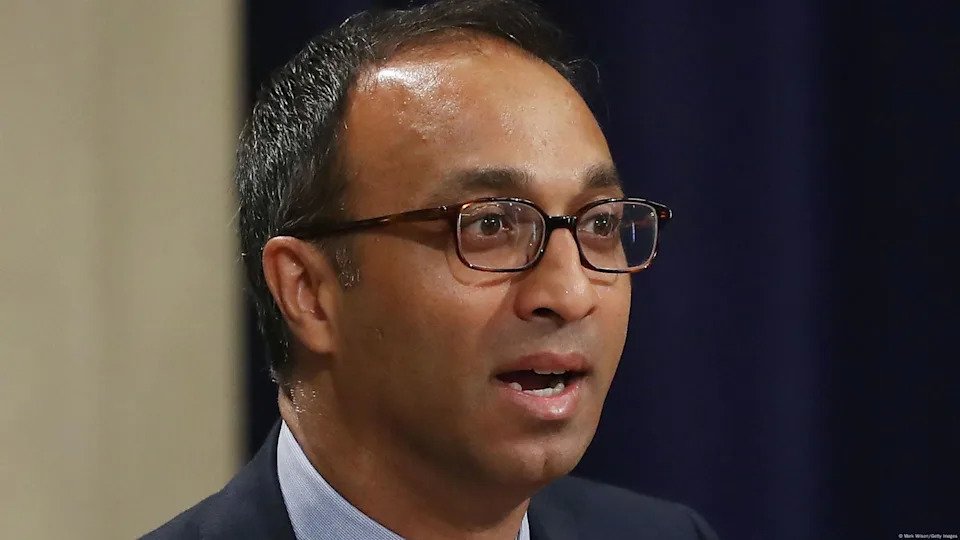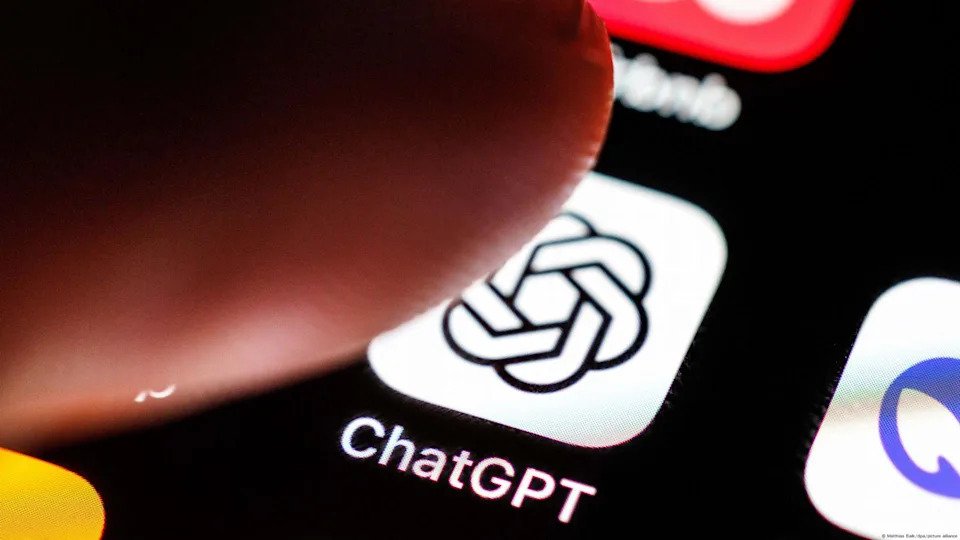Tools & Platforms
Did AI save Google from being broken apart by regulators?

In a tech-world irony, artificial intelligence (AI) seems to have come to the rescue of Silicon Valley old-guard firm Google and its Chrome web browser.
About a year ago, the future of Google looked shaky. In the biggest antitrust challenge it ever faced, a US court in Washington, DC, found that it illegally monopolized the search market with huge payments to other companies to ensure its search engine was the default option, which effectively blocked other competitors.
With this ruling, the US Department of Justice wanted to force Google to sell its lucrative Chrome browser or Android operating system. Many commentators foresaw the end of the tech giant and its search engine dominance.
A drawn-out and technical court case
The judge in the case, Amit Mehta, took over a year to decide the penalty. His final decision, announced on September 2, 2025, was met with relief from the company. It seems the tide had turned.
Judge Mehta took a deep dive into AI and its transformation of the online search businessMark Wilson/Getty Images
In a 230-page “memorandum opinion” Mehta decided that Google would not have to be broken apart but would have to share some information with rivals to increase competition and create an oversight committee to manage compliance.
It was a monumental — if limited — decision. What was most surprising was the judge’s view that generative artificial intelligence with its tens of millions of users had changed the trajectory of the entire search engine business in a few short months.
AI chatbots on the loose in Silicon Valley
“The emergence of generative AI changed the course of this case,” Mehta wrote on the first page of his judgment.
When the case first started in 2020, AI was less of a topic. Today, it is nearly impossible to avoid. There are concerns in the industry that AI-powered search engines could massively disrupt, if not replace, conventional search engines, a threat the judge now accepts as a real possibility.
Indeed, AI is quickly changing how people search and use the internet more generally. Instead of getting a set of links to follow, AI-powered chatbots give short answers directly, which satisfy many queries, for example.
Google has added chatbot features, and OpenAI, the company behind ChatGPT, launched its Operator browser this year. Other big companies working with similar generative AI products are Anthropic, DeepSeek, Meta, Microsoft, Perplexity and xAI.
AI and the future of online searches
“Chrome is a browser, and, for many, it continues to be an entry point for internet use,” Jinjun Xiong,the director of the University at Buffalo’s Institute for Artificial intelligence and Data Science, told DW.
But AI is quickly changing how users find information online. Traditional search interfaces are “being replaced by the chat interface, and this trend will continue to accelerate,” Xiong said.
He said Three things were driving this shift: ChatGPT’s free model and its easy access to the power of AI, increased awareness of the technology through constant media coverage, and amazing AI technological advancements.
AI turns search engines upside down
To underscore his newly acquired understanding of AI and the online search business, Mehta dedicated 30 pages in his judgment to explain what it is and how the market works.
Google is still dominant in the search industry, Mehta concluded, but “artificial intelligence technologies, particularly generative AI, may yet prove to be game changers.”
Though this AI technology is not yet close to replacing general search engines, “the industry expects that developers will continue to add features to generative AI products to perform more like general search engines.”

The ruling “recognizes how much the industry has changed through the advent of AI,” according to GoogleMatthias Balk/dpa/picture alliance
The judge acknowledged the “new realities” of the business, and said these had a profound impact on his judgement. “The money flowing into this space, and how quickly it has arrived, is astonishing,” he wrote. “These companies already are in a better position, both financially and technologically, to compete with Google than any traditional search company has been in decades.”
To show the complexity of dealing with such groundbreaking technology, Mehta added a personal note. “Unlike the typical case where the court’s job is to resolve a dispute based on historic facts, here the court is asked to gaze into a crystal ball and look to the future,” he wrote.
‘Very powerful ecosystem’
Some observers expect to see little change in how Google will do business after the ruling. Others say the company will have to rejig how it works.
The real issue is the power of the entrenched ecosystems created by companies such as Google, Xiong said. Going forward Google will be more careful as it maneuvers this ecosystem and its competition.
“Google or Chrome have built a very powerful ecosystem around the various tools that people are heavily dependent on, such as Gmail, Google Docs, YouTube, Google Drive, Maps, etc.,” Xiong said. “And those tools will also get better with Google’s AI technologies, as well.”
These existing ecosystems make it hard for other companies to break in and compete. Xiong would like to see Big Tech embrace an open ecosystem, something that the judge’s ruling did not actively encourage.
Edited by: Uwe Hessler
Tools & Platforms
Enhancing IT ops with a multi-AI agent approach

Tools & Platforms
OpenAI’s Bret Taylor Warns of AI Bubble but Sees Long-Term Value

OpenAI board chair Bret Taylor believes AI is in a bubble. Yet he insists this is not cause for alarm.
In a recent interview with The Verge, Taylor supported earlier remarks by OpenAI CEO Sam Altman, who warned that “someone is going to lose a phenomenal amount of money in AI.”
Taylor agreed with the statement. However, he also emphasized the long-term potential of the technology.
The Dot-Com Bubble
Taylor drew a direct line between today’s AI boom and the dot-com bubble of the late 1990s.
During that period, numerous internet startups rose quickly but collapsed once the bubble burst. But despite those failures, the internet itself reshaped the global economy.
According to Taylor, “all the people in 1999 were kind of right.” While many businesses failed, the vision of a connected digital age proved accurate.
He argued that AI may follow the same pattern. Several companies may not survive, yet the technology will endure and transform industries.
Also read: AI Bubble Burst: Is It Coming, and What Would It Mean?
Bubble
Taylor pointed to clear signs of a bubble in the AI sector: Capital inflows are immense; startups are attracting billions of dollars in funding.
Companies are valued far above their proven earnings, and the hype is intense; public attention is growing faster than practical results.
Taylor acknowledged these risks. Still, he described them as common features of periods of rapid innovation.
Historical Precedent
History supports his view.
- The dot-com bubble produced failures but also gave rise to Amazon and Google.
- The railroad boom in the 1800s caused investor losses, yet railroads became vital to commerce.
- The housing crisis in 2008 triggered financial reform and new oversight.
These examples suggest that bubbles can destroy capital but also lay the foundation for lasting change. Taylor argued that AI is on the same trajectory.
Long-term Implications
The bubble will affect markets more than daily life. Chatbots, design tools, and AI-driven assistants will continue to appear. But investors and startups will bear the greatest risk.
Over time, however, consumers may benefit most. Just as the internet brought online banking, e-commerce, and digital entertainment, AI may deliver personal health tools, adaptive tutors, and advanced workplace assistants.
Duality
Taylor’s perspective is measured. He accepts the risks but underscores the promise. AI may be overvalued in the short term.
At the same time, it may also become one of the most significant technologies of the century. This dual reality reflects his central point.
A bubble can exist without undermining the long-term value of the technology itself. For Taylor, the turbulence is temporary.
Tools & Platforms
Your browser is not supported
augustachronicle.com wants to ensure the best experience for all of our readers, so we built our site to take advantage of the latest technology, making it faster and easier to use.
Unfortunately, your browser is not supported. Please download one of these browsers for the best experience on augustachronicle.com
-

 Business2 weeks ago
Business2 weeks agoThe Guardian view on Trump and the Fed: independence is no substitute for accountability | Editorial
-
Tools & Platforms1 month ago
Building Trust in Military AI Starts with Opening the Black Box – War on the Rocks
-

 Ethics & Policy2 months ago
Ethics & Policy2 months agoSDAIA Supports Saudi Arabia’s Leadership in Shaping Global AI Ethics, Policy, and Research – وكالة الأنباء السعودية
-

 Events & Conferences4 months ago
Events & Conferences4 months agoJourney to 1000 models: Scaling Instagram’s recommendation system
-

 Jobs & Careers3 months ago
Jobs & Careers3 months agoMumbai-based Perplexity Alternative Has 60k+ Users Without Funding
-

 Podcasts & Talks2 months ago
Podcasts & Talks2 months agoHappy 4th of July! 🎆 Made with Veo 3 in Gemini
-

 Education3 months ago
Education3 months agoVEX Robotics launches AI-powered classroom robotics system
-

 Education2 months ago
Education2 months agoMacron says UK and France have duty to tackle illegal migration ‘with humanity, solidarity and firmness’ – UK politics live | Politics
-

 Funding & Business3 months ago
Funding & Business3 months agoKayak and Expedia race to build AI travel agents that turn social posts into itineraries
-

 Podcasts & Talks2 months ago
Podcasts & Talks2 months agoOpenAI 🤝 @teamganassi

